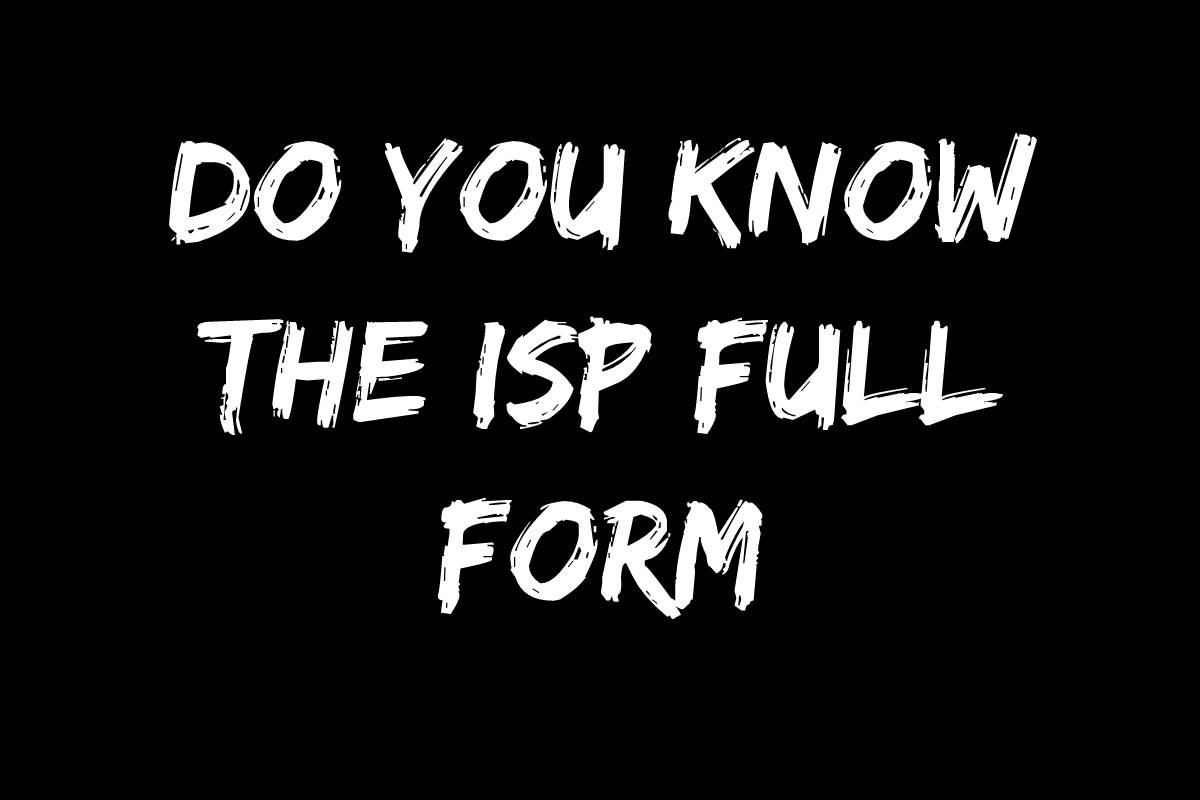WHAT IS AN ISP?
As its name suggests, an ISP or Internet Service Provider is the term used to identify companies that provide Internet access, both to households and to other companies.
That is, you can have the most powerful computer in the world with a brand new network card. And the home or office wired with fiber optics. Which without an ISP you will not have the possibility to navigate. And in order to navigate, you need to pay a fee to one of these providers.
As you got that isp full form is internet service….
Internet service providers, or more commonly known by their acronym ISP, provide users with access to the Internet and other related services.
These ISPs connect clients through networks. Most ISP companies provide users with telecommunications services, giving them access to data communications and a telephone connection. Now almost all the Movistar telephone companies, Vodafone, like many other local operators, operate as ISPs.
What are the various types of Internet Service Providers?
There are quite a several different types of Internet Service Providers available today, including free access, mailbox, server space, transit, virtual, and free.
- Access ISPs – Employ different technology to facilitate connecting clients to your network. These technologies may include a broadband or switched line connection. Types of permanent broadband connections, composite cable, fiber optic service (FiOS), DSL (Digital Subscriber Line), and satellite. Plenty of access providers also provide email and server services.
- Mailbox ISPs – They offer mailbox server services and email servers to send, receive, and store email. Many mailbox ISPs are also accessing providers.
- ISP Servers – They offer email, File Transfer Protocol (FTP), web server services, virtual machines, cloud, and physical servers.
- Transit ISPs – Provide large amounts of bandwidth required to connect ISPs to servers and jointly access ISPs.
- Virtual ISPs (VISP) – Purchase services from other ISPs to allow customers access to the Internet.
- Free ISPs (Freenet’s) – Provide service for free and often display ads while users are online.
What does an ISP do?
We all have some type of device in our house or our company that connects us to the Internet. Through this device, your phone, your laptop, your desktop computer, and other devices. However, that can connect to the Internet reach the rest of the world – and everything done through various ISPs.
Let’s see an example of where the Internet service provider is within the chain of events that allow you to download files and open web pages from the Internet …
Let’s say you are using your laptop at home to access this page. However, Your Internet browser first uses the DNS servers. That are installed on your device to translate the domain name of this web page to the IP address with which it is associated. (what is the address that this web page has configured to use from its ISP ).
The IP address you want to access then sent from your router to your ISP. who forwards the ISP request that uses this web page.
This web page is capable of sending this back to your ISP, which then forwards this data to your home router and back to the computer.
All of this is done pretty quickly – usually in seconds, which is quite surprising. None of this would mean possible unless both your home and work network has a valid public IP address assigned by an ISP.
The same concept applies to the sending and downloading of other files such as videos, images, documents, etc. – Anything you download online can only transfer through an ISP full form.
If you found this post interesting, I would appreciate it if you would like it or share it with a friend. You can also find other similar quite curious posts within the category.

